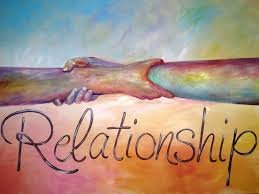The title of my article is a citation from the fictitious person "Galadriel," the Woman of the Forest of Lothlorien, a Mythical being Sovereign who had one of the strong rings, about which writer J.R.R. Tolkien wrote in his series of works of fiction named "The Ruler of The Rings." In the film that was adjusted from the primary book, Galadriel speaks, "Much that used to be is presently lost since none currently live who recollect it." That statement could have been a terrible beginning to the person's relationship with the survey (the film) and perusing (the book) crowd, for she actually lived and she was essential for it. Sauron, the series' main adversary (miscreant) gave her one of the rings to outfit her power during the "once was" time.

Enduring individuals (and imaginary people) do appear to enjoy an upper hand over most of us. They have longer to learn and apply examples throughout everyday life. They might see designs rehash, which could prompt their securing influence, riches, love, deference, and control past what a human (or imaginary person) can be anticipated to accomplish in a typical life expectancy. Peruse J.R.R. Tolkien's books if you have any desire to see how deep into portraying subtleties that a writer will go to make sense of fictitious connections (among people, wizards, mythical beings, dwarves, orks, and so forth.). Watch the movies to find out how far a film maker will turn out in introducing massacre as a method for accomplishing a beneficial film.
.jpeg)
Web search Deuteronomy 34: 7 to perceive how long a real individual once lived. Scriptural researchers have found proof and concurred that seemingly perpetual Moses had and drilled these human characteristics during his life: Outright confidence in God, Honesty (profound quality, morals), Prescience (thinks in a calculated way, to plan and support the degree of God), Solidness (stands like a stone even with individual danger), Confidence (Trusted and Submitted to God). Do you see the reason why God chose Moses to lead the Jewish public out of servitude in Egypt, close to the land that he (God) had vowed to Abraham? Most significant, this would be an excursion of the Jewish nation into framing their relationship with God, a period in which God molded them to deserve his picking them. A solid human pioneer was the way that God decided to impart, and that pioneer, Moses was likewise the necessary resources to convey to people in that time, up to now, and then some!
Moses' assignment appeared to be straightforward, to acknowledge God approaching him, to pay attention to everything that God said to him to do, and to do it. That last part expected him to stand near the a great many Jews, to clarify for them what God believed them should do, and to lead them to do precisely that. This was one of the more troublesome connections that an individual has needed to accomplish. Ponder Moses' confidence. Moses had remained before the Egyptian Pharaoh (Ruler) on various events (as God advised him to do) and portrayed God's rage (a progression of diseases) that would possibly stop when Pharaoh liberated the Jewish nation from subjugation.
.jpeg)
Presently, envision Moses driving a huge number of families toward the Red Ocean as he gets word that Pharaoh has sent his military in quest for the Jews, drove by war chariots (the necessary resources to squash Egypt's foes) haphazard (head-first, in a fury of outrage). This is the kind of situation about which Commanders dream, to stick a rival's military against a steadfast deterrent (like the Red Ocean). Moses didn't realize that God would move the steady; God separated the Red Ocean to permit Moses and the Jews to pass to the opposite side.